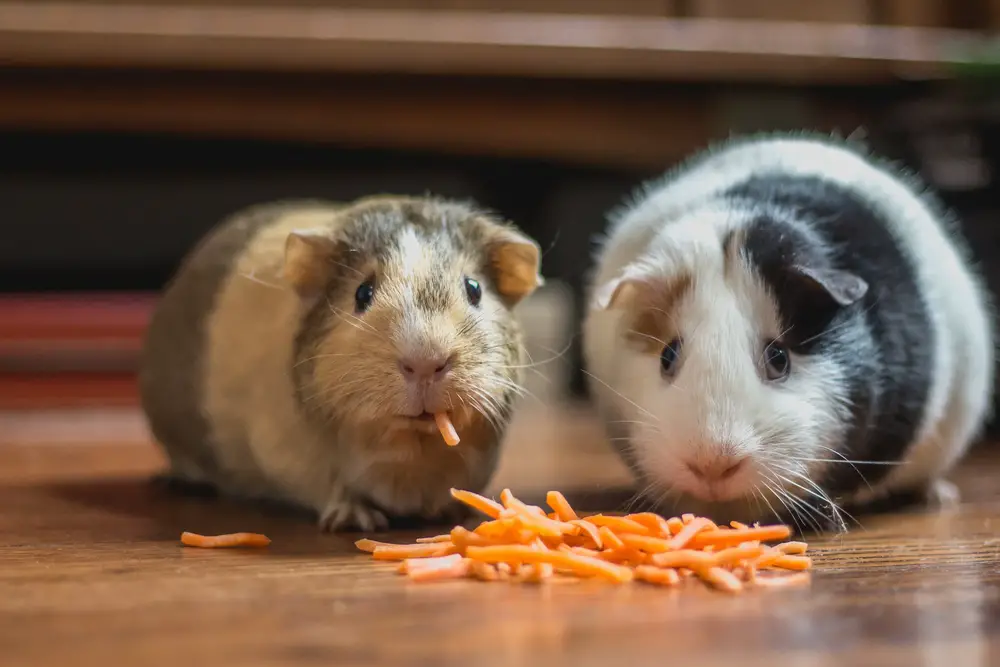
Can Guinea Pigs Eat Corn On The Cob? 3 Great Benefits PetCosset
Guinea pigs can eat more than just the kernels of a corn cob. However, each part should be introduced slowly and monitored closely. Corn Kernels: These are safe for guinea pigs but should be given in moderation due to their high sugar content. Corn Silk: This is safe and can even aid in digestion.

Can Guinea Pigs Eat Corn On The Cob? (Safety Concerns, Benefits, Risks) Precisely Pets
Yes, Guinea pigs can eat corn on the cob but only in moderation. The cob of corn is where you find the kernels. More often than not your Guinea Pigs will eat the kernels but not the actual cob. the kernels on the cob are higher in sugar and starch, so you shouldn't give your guinea pigs too much of it.
Cavy Savvy A Guinea Pig Blog Can Guinea Pigs Eat Corn on the Cob?
Guinea pigs can eat almost every part of the corn as long as it's not cooked. This means they can eat corn kernels, husk or silk. Guinea pigs like corn husk the most and after that corn silk. This means that corn kernels are their least favorite part of the corn. There will be problems with digestion if the guinea pigs consume cooked corn. Feed them raw corn, or corn from the cob, but never.

Corn on the Cob for the Guinea Pigs YouTube
Guinea pigs can eat corn, just with a few caveats: Corn is provided infrequently as a treat (2-3x per week). Corn is provided on the cob, raw and uncooked. Canned and cracked corn is never provided. Corn husk and silks can be fed freely and this is actually preferential.
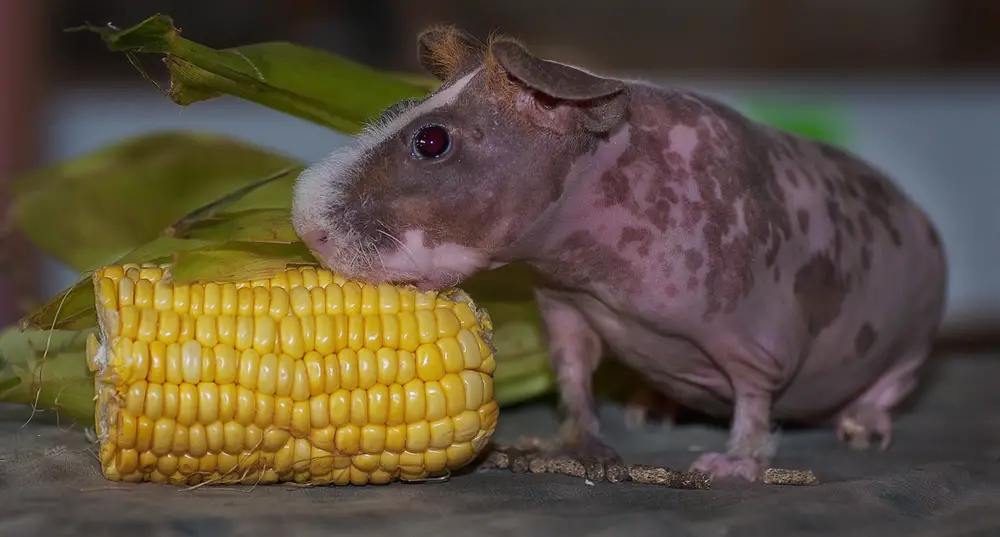
Can Guinea Pigs Eat Corn On The Cob? 3 Great Benefits PetCosset
Guinea pigs can eat baby corn (from the maize plant) in small amounts a couple of times a week. These small cobs are picked before they become fully mature so can be eaten in whole, unlike the mature corn cobs which have a hard, inedible cob. There isn't much information available about the nutritional value of these cornlets, but remember.

Can Guinea Pigs Eat Corn? What You Need To Know! Pet Keen
Yes, guinea pigs can eat corn on the cob but only in moderation. A corncob, also known as a cob of corn, is the central core of an ear of corn. It is on which the kernels grow. Corn on the cob can be a yummy treat for guinea pigs, but it has high starch content. Always feed corn on the cob fresh and uncooked.
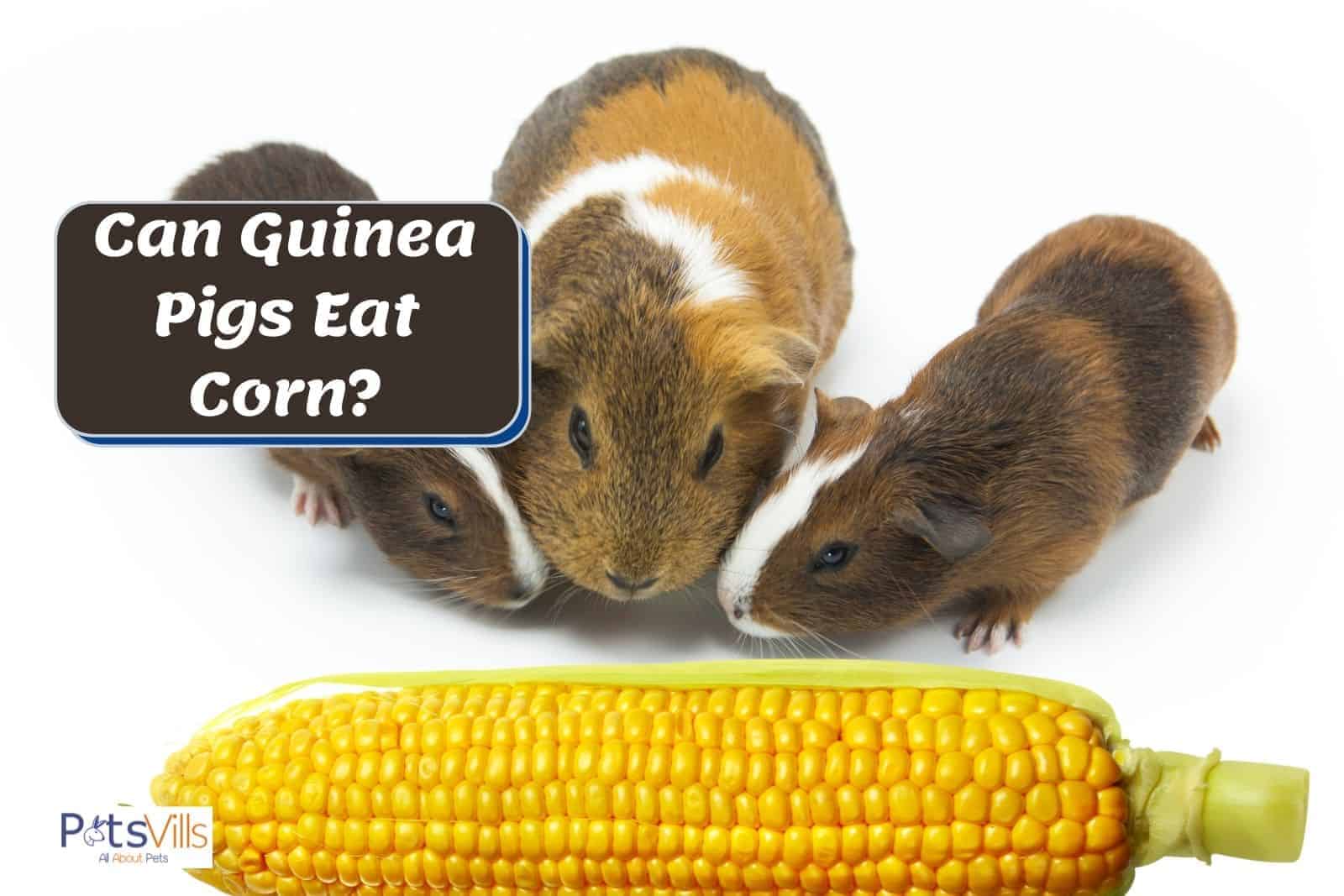
Can Guinea Pigs Eat Corn (Benefits, Risks, and More)
Guinea pigs can eat fresh raw corn kernels directly from the cob. You can shave them off or let them eat directly off the cob. Guinea pigs are unlikely to try to eat the core of the cob as it is very hard and inedible. Do not feed hard dry corn kernels, as these can get stuck in the teeth and also pose a serious choking risk.

Can Guinea Pigs Have Corn on the Cob? DOGGO
5. Other Considerations For Guinea Pig Nutrition. Guinea pigs can eat corn on the cob, including both the kernels and husks. However, it is important to limit the amount of raw corn they consume to a few times a week. Corn can be a tasty treat for guinea pigs, but it is high in starch and should be given in moderation.
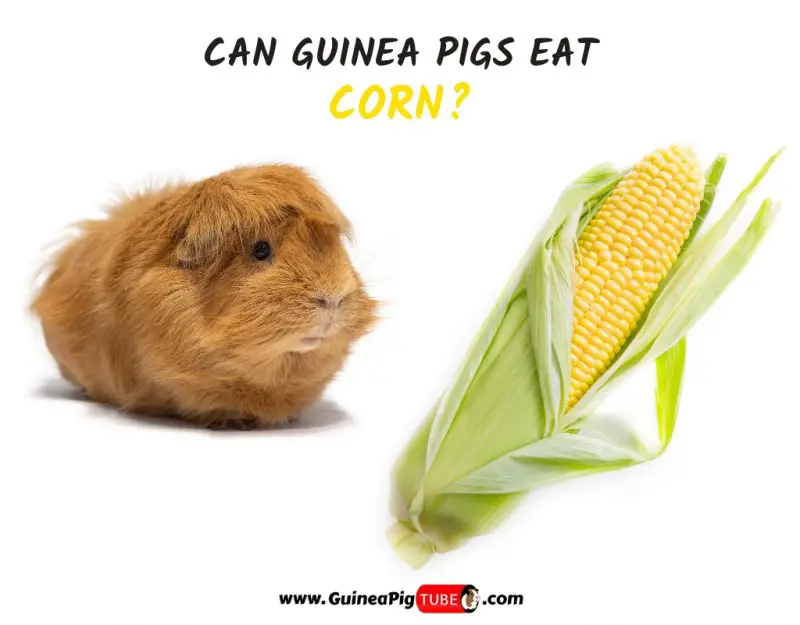
Can Guinea Pigs Eat Corn Kernels, Husk and Silk? (Benefits, Risks, Serving Size & More
Corn isn't blatantly toxic and won't cause most guinea pigs problems. However, you shouldn't feed your guinea pig too much corn, as it is high in starch. One of the great things about corn is that your guinea pig can eat many parts of the plant, including parts you won't eat. For this reason, you can easily set things like the husks.

Guinea Pigs Eating CORN LEAVES Short Video Clips Guinea Piggles YouTube
Guinea pigs should not eat cooked corn on the cob. Offer it raw, with the husks and silk if you choose. Guinea pigs' bodies aren't designed to digest cooked food, so eating it can cause diarrhea or stomach pains for your piggy.
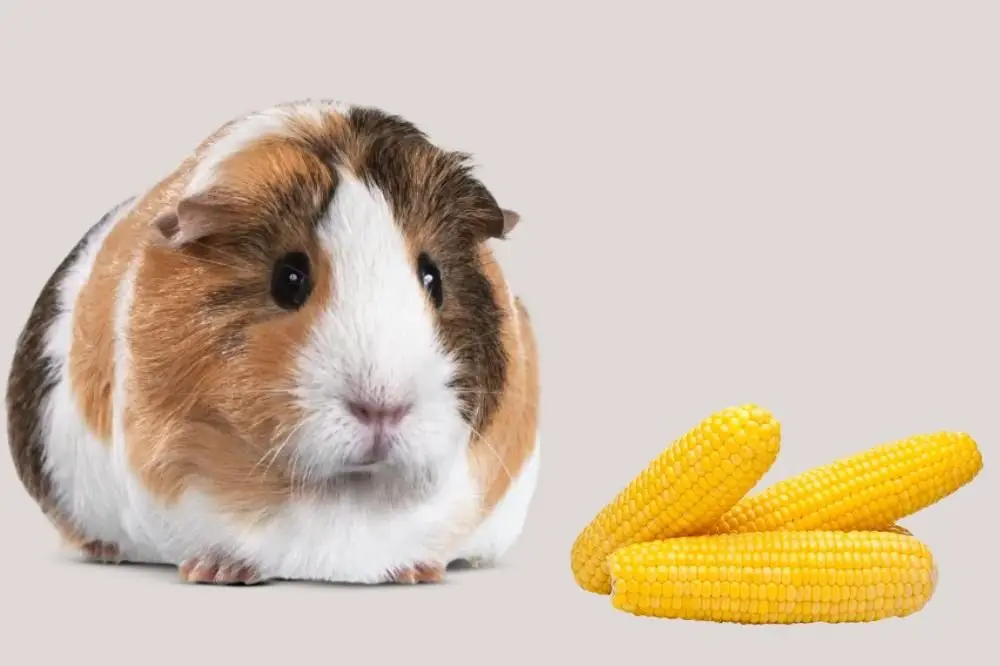
Can Guinea Pigs Eat Corn? [Feeding Guide!] AtractivoPets
Generally, guinea pigs can eat corn safely. Because of the high sugar content, corn kernels can be eaten once or twice as week as a treat. However, corn husks and silks have much of the same nutritional value as hay, and they can be eaten every day or every other day.. Corn can be given on the cob, raw and uncooked, but avoid frozen, canned.
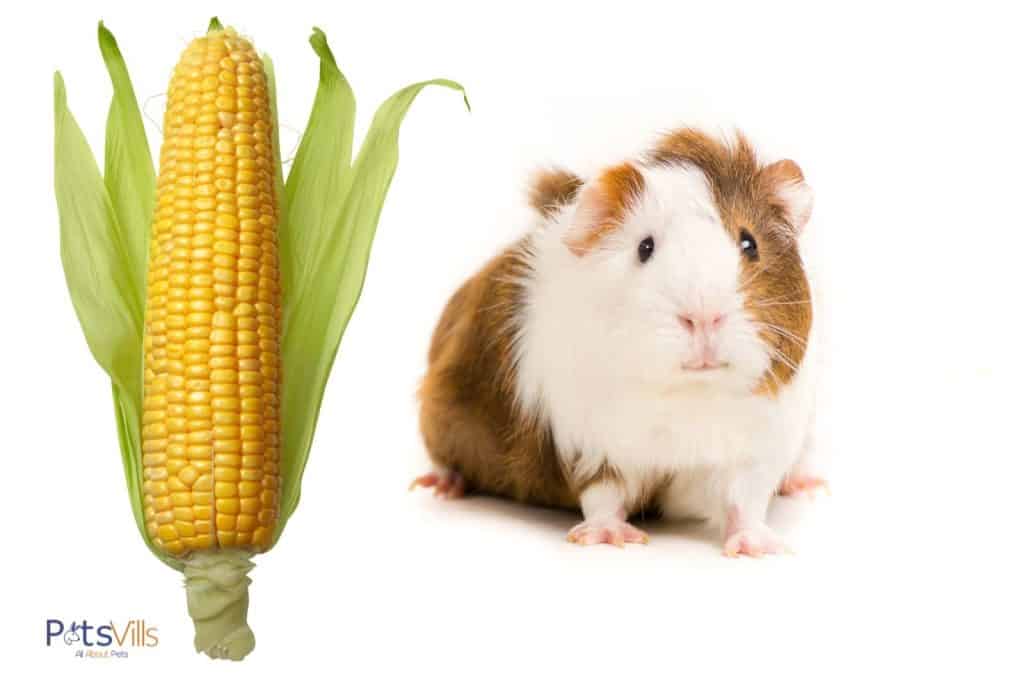
Can Guinea Pigs Eat Corn (Benefits, Risks, and More)
The simple answer would be yes. Your pet guinea pigs can safely eat and have corn on the cob. Corn on the cob will not poison or harm your little furry pets. However, remember to feed your guinea pigs corn on the cob only occasionally and not make it a frequent or daily meal. Definitely at the most only 1 to 2 times a week.

Guinea Pig Herd eating corn YouTube
Yes, guinea pigs can eat mini corn. Feeding your pet mini corn is much the same as feeding them, regular sweetcorn. Never feed your cavies cooked mini corn, only raw. It is also best to moderate the amount of corn your guinea pig eats. They cannot eat a lot of mini corn or eat mini corn on a daily basis. Mini corn can be served to your pig as a.

Corn Calculations Backcountry Talk
A good rule is if sweet corn on the cob is wilted or moldy it's not good for your guinea pig. Your guinea pigs prefer the husks and the silk and may even gnaw a bit on the actual cob. The cob won't harm them but don't let them digest it too regularly. Baby corn is also okay if it's fresh and fed as part of a standard diet of hay.
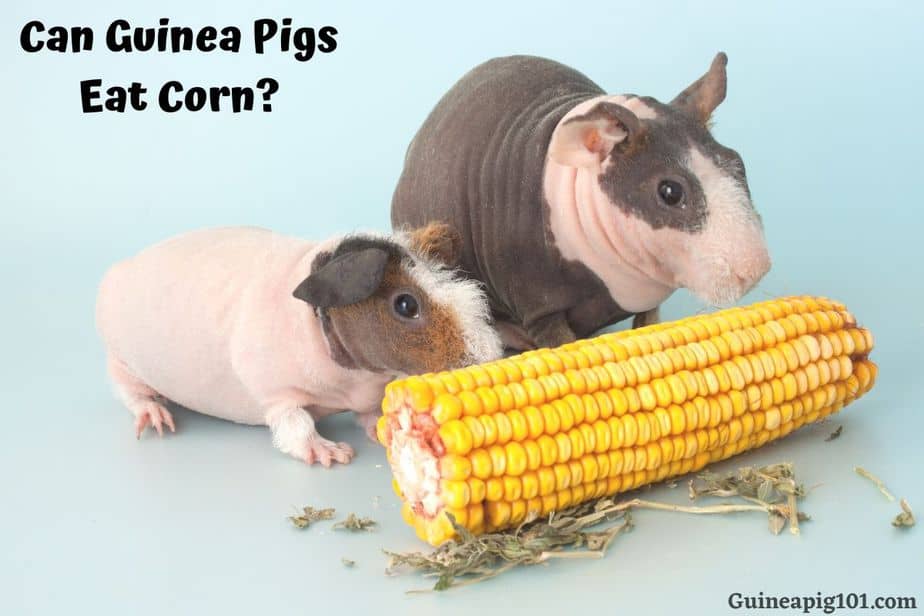
Can Guinea Pigs Eat Corn? (Corn On The Cob, Husk, Leaves, & More)
Canned Corn: While guinea pigs can technically eat canned corn, it's best to avoid it due to the high salt content. Fresh or frozen corn is a healthier choice. Cooked Corn: Plain, cooked corn kernels are safe for guinea pigs. Avoid any seasoning or additives. Corn on the Cob: Guinea pigs can nibble on corn on the cob, but it should be raw and.

Can Guinea Pigs Eat Corn On The Cob? (Safety Concerns, Benefits, Risks) Precisely Pets
Yes, corn is generally safe for guinea pigs if it's raw and unseasoned. You should not feed your guinea pig cooked corn, especially with seasoning, spices, or oils. Raw corn kernels are your safest bet, but you should limit how much and how often you feed it. Corn is high in starch, which can contribute to obesity and related health problems.
